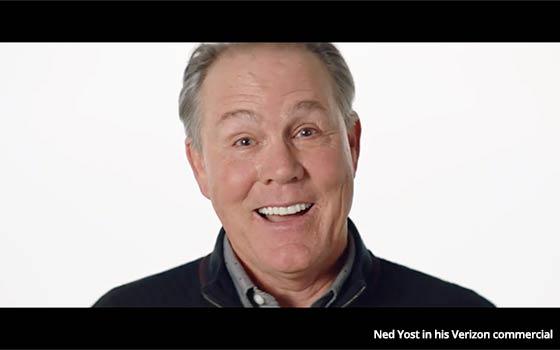
An ad
industry watchdog has recommended that Verizon discontinue or revise two television ads that draw on testimonials by customers.
One of the ads, “Ned,” features Kansas City Royals
manager Ned Yost, who suffered a broken pelvis after falling from a tree on his property near Atlanta, Georgia.
In the
ad, he says his phone saved his life by allowing him to call his wife from “the middle of the woods.”
“I’ve talked on this phone through the happiest times in my life
and through the saddest times in my life. But I never dreamed in a thousand years that it would save my life,” he says in the spot. “I fell 22 feet, completely shattered my pelvis. In the
middle of the woods, I called my wife.”
AT&T challenged the claims to the National Advertising Division, a unit administered by the Better Business Bureau. AT&T contended that
the spot was misleading on the grounds that Verizon doesn't actually offer coverage everywhere.
The watchdog found the ad problematic because it suggested that Yost made the call from below
ground level.
“When someone falls 22 feet in the middle of the woods, at least one message, if not the only message reasonably conveyed, is that the person was standing on the ground
when they fell, and thus that they fell down a hill or canyon,” the self-regulatory group wrote. “Being able to call home after a fall down a ravine in a remote rural area would, indeed,
save your life.”
The National Advertising Division also recommended that Verizon revise or discontinue a commercial featuring a young man, “Jarrett,” who says he goes to a lot of musical festivals and enjoys being "the
friend with service” at the venues.
“It’s really cool to be able to take a photo, take a video and be immediately able to post it on my social media,” he says in the
spot.
The watchdog found that the ad “reasonably conveys the message that Jarrett’s friends do not have service and thus that Verizon has superior capacity at concert venues
compared to all other major networks.”
Verizon failed to offer comparative data to support that claim, according to the National Advertising Division.
The organization added that
Verizon said it disagrees that consumers would misunderstand the statements in the ads, but also said it will follow the recommendation.